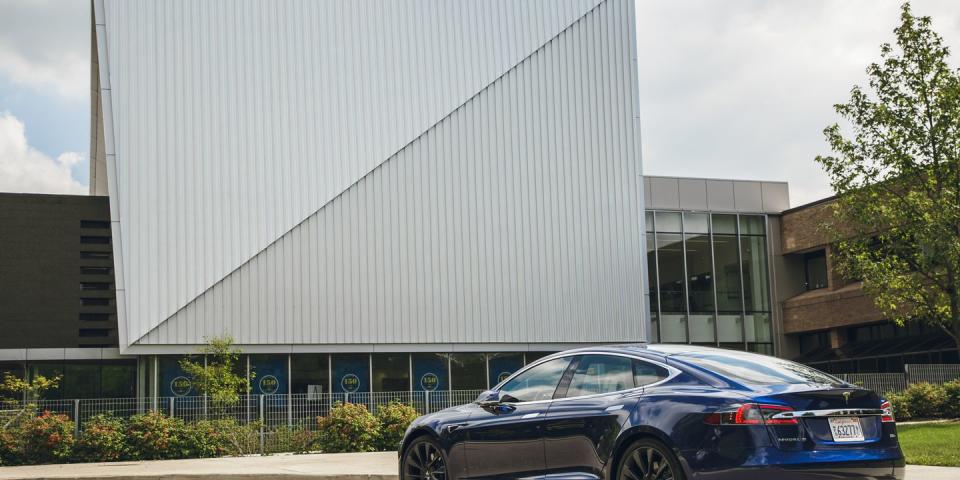Tesla's Challenges Stretch Far Beyond Musk's Tweets

As other, larger automakers get in on the EV game, Tesla’s market share is sure to decline. The selection of electric cars and plug-in hybrid alternatives continues to broaden with each new model year, so if projections for rapid expansion of the electric-car market are correct, Tesla's overall sales could keep climbing and still represent a smaller slice of a growing pie.
Thanks mostly to low demand for small cars in the U.S., the Chevrolet Bolt-the first mainstream EV to challenge Tesla’s range claims-will probably play less of a role in the EV transition than upcoming crossovers such as the Volkswagen I.D. Crozz. On the luxury end of things, the just-released Jaguar I-Pace is just the first of several that could take a bite out of the Tesla Model X's leadership in the electric SUV segment.
What Tesla has going for it right now is brand capital. Owning a Tesla is a badge of green honor among the well-heeled. But, says Navigant’s Sam Abuelsamid, it doesn’t take much for that to change. Early adopters are much more tolerant of recurring reliability problems than are mass-market customers. Tesla’s reliability record thus far and its limited service network, which can lead to long wait times for repairs, aren’t traits that mainstream buyers are likely to tolerate. When we tested a privately-owned Model 3, we witnessed some of the worst body panel gaps we’ve ever seen in a modern car. Customers have reported mismatched paint and entire bumpers falling off. Interior quality and materials don't stand up to the standards set by traditional luxury brands.

Yet none of that-not even the federal government ousting Elon Musk from his chairman position-seems to matter to Tesla believers. There are still hundreds of thousands of people waiting for Tesla’s entry-level Model 3. Others have paid a quarter-million dollars to be first in line for the next Roadster and its unproven claim of accelerating to 60 mph in less than two seconds. Tesla’s third quarter sales reached a record 83,500 worldwide, a number that equaled 82 percent of its full-year 2017 sales. Tesla models regularly outsell gasoline luxury cars such as the Mercedes-Benz S-class. Acceleration, handling, and safety ratings are exemplary.
Thus far, consumer demand has been at the high-price end of the market. More mainstream and affordable EVs are around, yet few Americans seem to care. Through September, Nissan had sold only 10,686 Leaf cars and General Motors moved 11,807 Chevrolet Bolt EV models within the U.S. In the same period, Tesla delivered 55,840 Model 3 sedans, nearly all of them in the U.S., and most were costly variants approaching double the supposed $35,000 base price, not really comparable to the Nissan and Chevy entries.

Tesla’s undeniable cachet has been established without significant competition, but it now faces the imminent arrival of desirable, high-quality EVs from other automakers with prestige nameplates such as Audi, Porsche, and Mercedes-Benz. Can it step up its quality control and deliver on its promises quickly enough to sustain its advantage? Remember that Tesla has now passed the 200,000-unit milestone where federal tax incentives to EV buyers begin to wind down while its new competitors are just getting started and remain fully eligible.
Given Musk’s manic leadership, Tesla’s inability to turn an annual profit, and the federal administration's efforts to change the rules (including California's separate standards), the challenges are significant. Successful as it has been at establishing a premium image for electric and self-driving technology, there remains a strong likelihood that Tesla could fail, or be absorbed by one of the world's bigger, established automakers. Being first to market with a revolutionary product earns you a place in history, but it is no guarantee of long-term survival.
('You Might Also Like',)

 Yahoo Autos
Yahoo Autos 